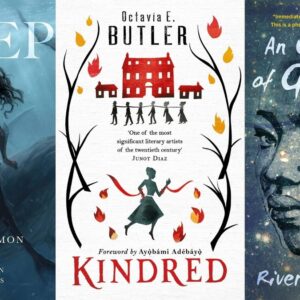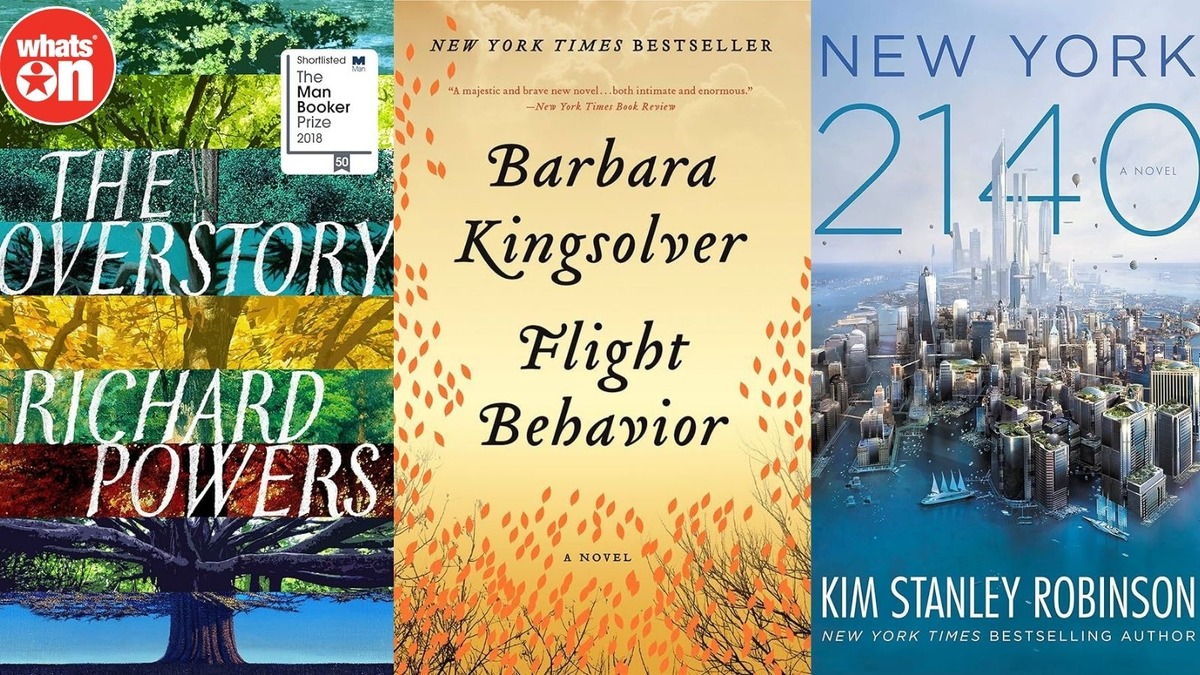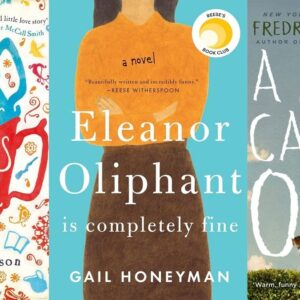Wednesday Wisdom: Explore climate fiction’s best with our top 5 Cli-Fi books that blend eco-thrillers, survival sagas, and planetary rebellion. These powerful novels imagine what happens when Earth strikes back. From collapsing ecosystems to post-apocalyptic politics, these gripping tales turn scientific warnings into unforgettable stories. A must-read list for climate-conscious readers and fiction lovers alike.
1. The Overstory by Richard Powers (2018)
Richard Powers’ Pulitzer Prize-winning The Overstory isn’t just a book—it’s a profound love letter to trees. This multi-layered narrative weaves together the lives of nine individuals across decades, all of whom are drawn into the defence of the natural world. What starts as personal quests transforms into a collective uprising to save forests from destruction. Powers doesn’t just spotlight climate change—he offers a deeply spiritual and ecological meditation on how trees communicate, live, and resist human destruction.
This book reshapes the reader’s relationship with nature, illustrating the ripple effects of small environmental choices and making us question our place in the natural order. It’s less a plot-driven thriller and more a literary forest where each chapter is a root or branch connected to a bigger message: the planet is speaking—are we listening?
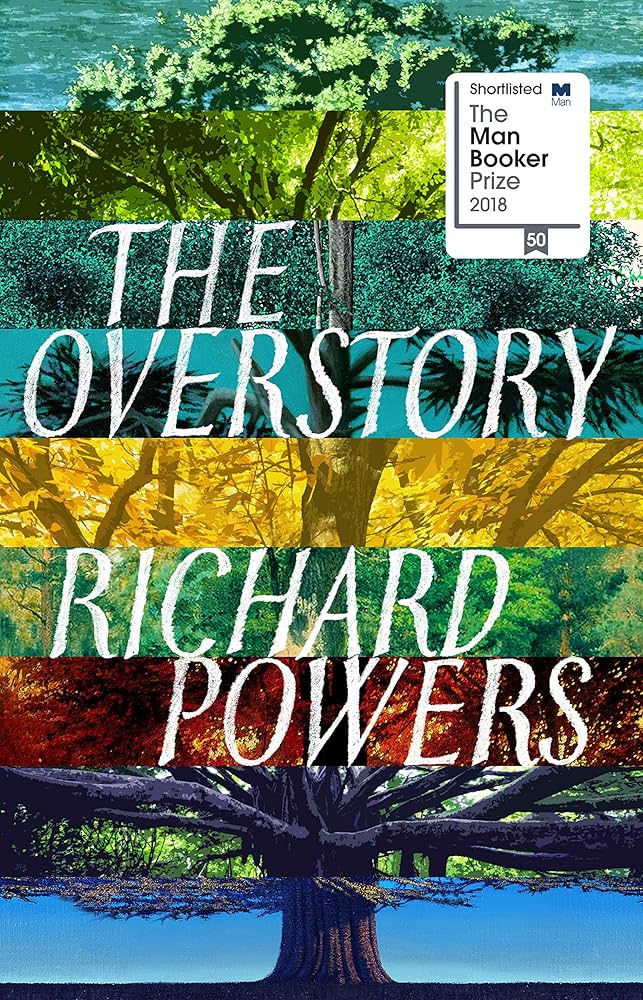
2. Flight Behaviour by Barbara Kingsolver (2012)
In Flight Behaviour, Barbara Kingsolver paints a vivid portrait of climate change unfolding in rural Tennessee. The story follows Dellarobia Turnbow, a frustrated housewife whose discovery of millions of monarch butterflies disrupts her life and community. This ecological anomaly becomes a powerful metaphor for the planet’s instability. As media, scientists, and locals descend upon the town, Kingsolver masterfully weaves together personal conflict and scientific revelation.
With richly detailed prose and grounded realism, the novel explores how climate change is experienced not as a distant scientific report but as something deeply personal and spiritual. Kingsolver’s strength lies in making environmental issues feel human and urgent. The butterflies’ misplaced migration is both a sign of ecological imbalance and a symbol of hope—can adaptation still save us?
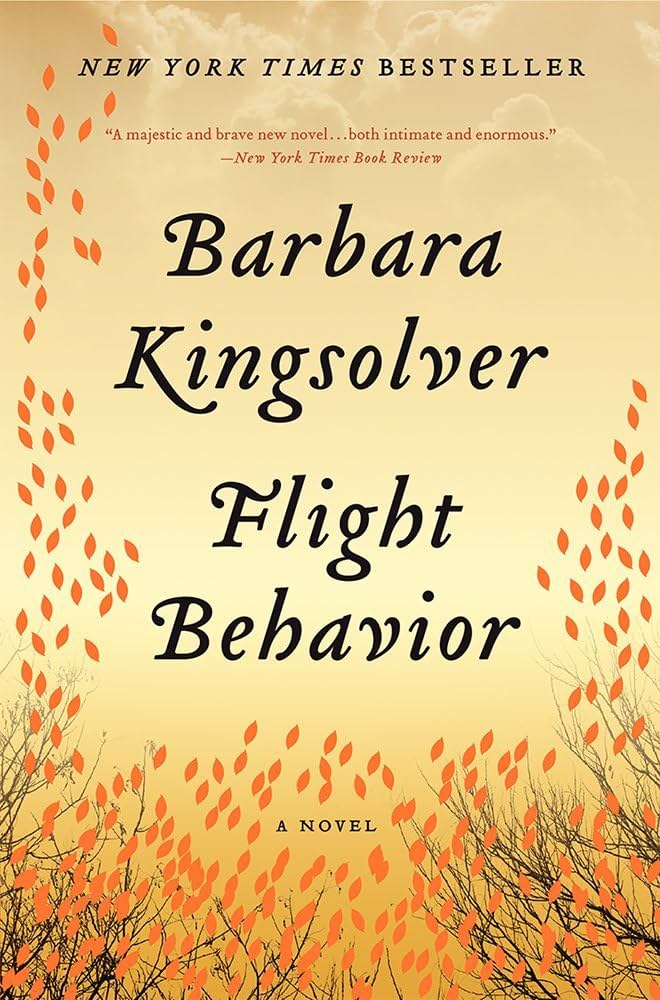
3. New York 2140 by Kim Stanley Robinson (2017)
What if New York didn’t drown but adapted? In New York 2140, Kim Stanley Robinson imagines a future where climate change has raised sea levels by 50 feet, but humanity finds a way to survive—skyscrapers become islands, and canals criss-cross the city like Venice. The novel explores this partially submerged metropolis through a diverse cast: from financiers to street kids to climate activists.
It’s a gripping fusion of eco-fiction, financial thriller, and utopian survival tale. Robinson is renowned for his speculative realism, and here he delivers both thrilling drama and scientific forecasting with precision. The book’s strength lies in its optimism—this isn’t just a world of doom but one where people fight back with ideas, resilience, and revolution. It’s a Cli-Fi classic for those who believe the future isn’t fixed, but forged.
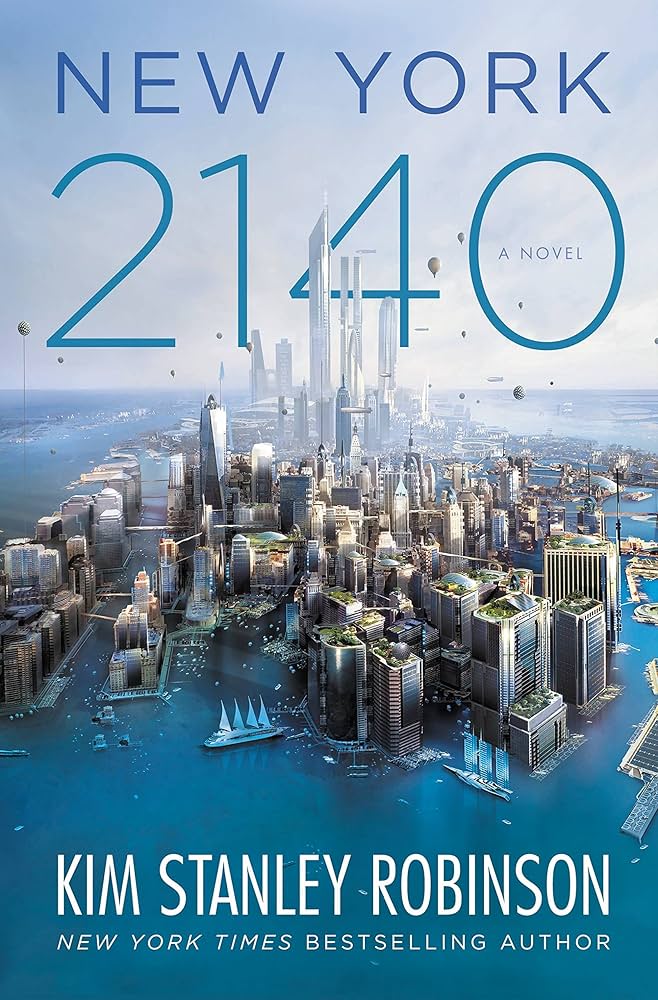
4. The Drowned World by J.G. Ballard (1962)
One of the earliest works of Cli-Fi, J.G. Ballard’s The Drowned World imagines a future where solar radiation has melted the polar ice caps, submerging cities beneath tropical lagoons. Set in a flooded, prehistoric London, it follows a team of scientists—and one man’s psychological descent—as they explore the submerged remnants of human civilisation. Ballard’s writing is dreamlike and haunting, merging science fiction with psychological and environmental themes.
The novel explores how the climate crisis impacts not just the world, but the human mind. Instead of fighting the encroaching nature, the protagonist is drawn to it, surrendering to a world in ecological reverse. Ballard’s novel is less about resistance and more about acceptance—an eerie meditation on evolution, memory, and the unconscious forces of nature.
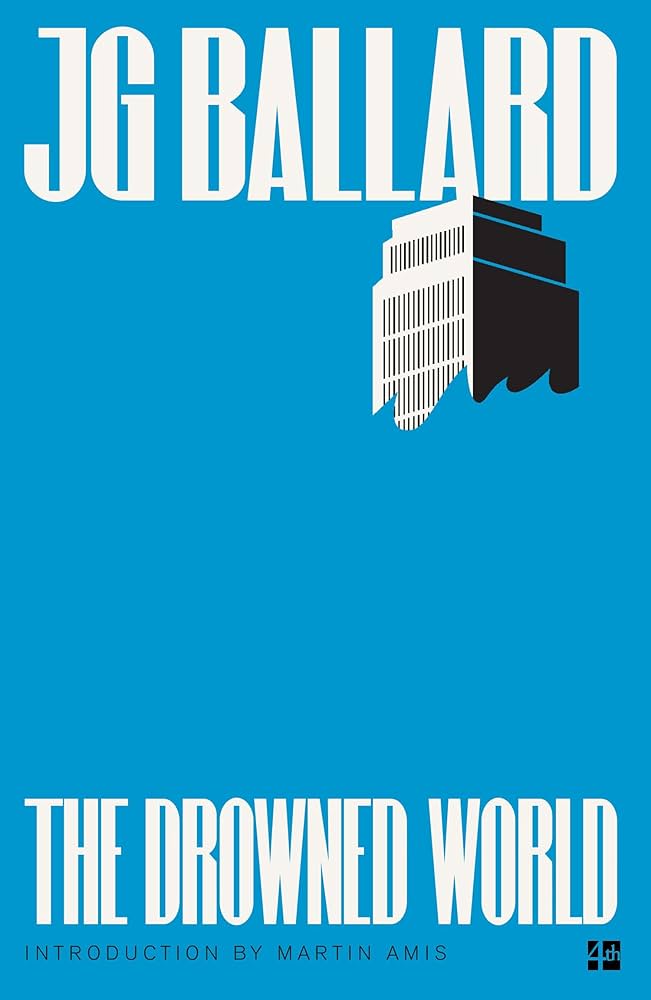
5. The Ministry for the Future by Kim Stanley Robinson (2020)
Another brilliant entry from Kim Stanley Robinson, The Ministry for the Future is perhaps the most ambitious and urgent Cli-Fi novel of our time. Opening with a devastating heatwave in India that kills millions, the book follows a UN agency formed to protect future generations from climate catastrophe. Through a mix of narratives, including scientists, terrorists, refugees, and policymakers, Robinson constructs a sweeping view of the global crisis.
This isn’t dystopia for the sake of fear—it’s a blueprint for hope, activism, and climate justice. From geoengineering to financial reform, the novel presents realistic solutions grounded in science and politics. It’s challenging, bold, and ultimately optimistic, insisting that humanity can—must—fight back against environmental collapse. This book doesn’t ask “what if the planet fought back?” but “what if we did?”
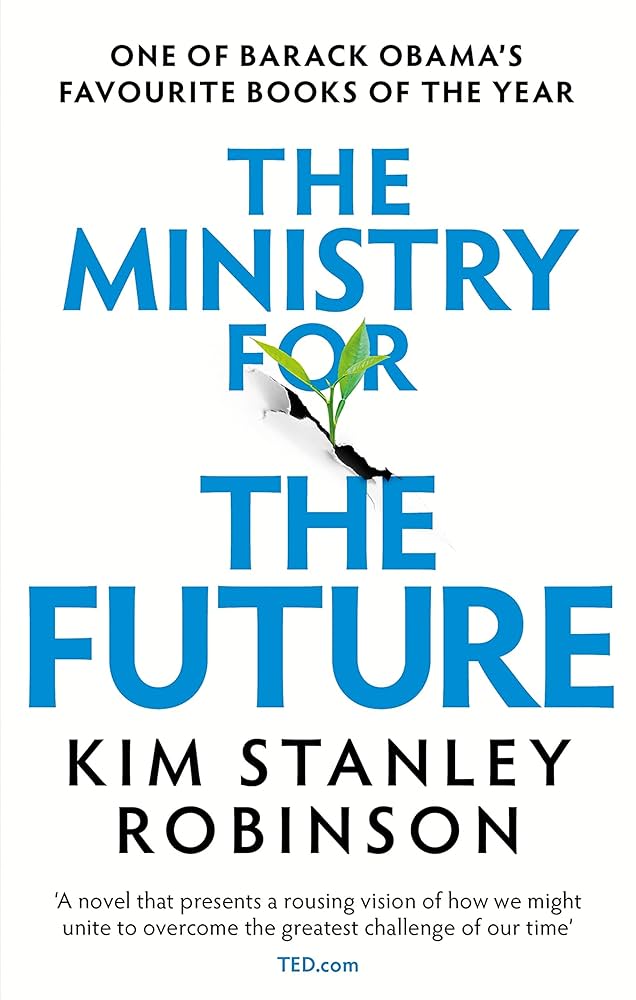
For more book reviews, visit WhatsOn.Guide


